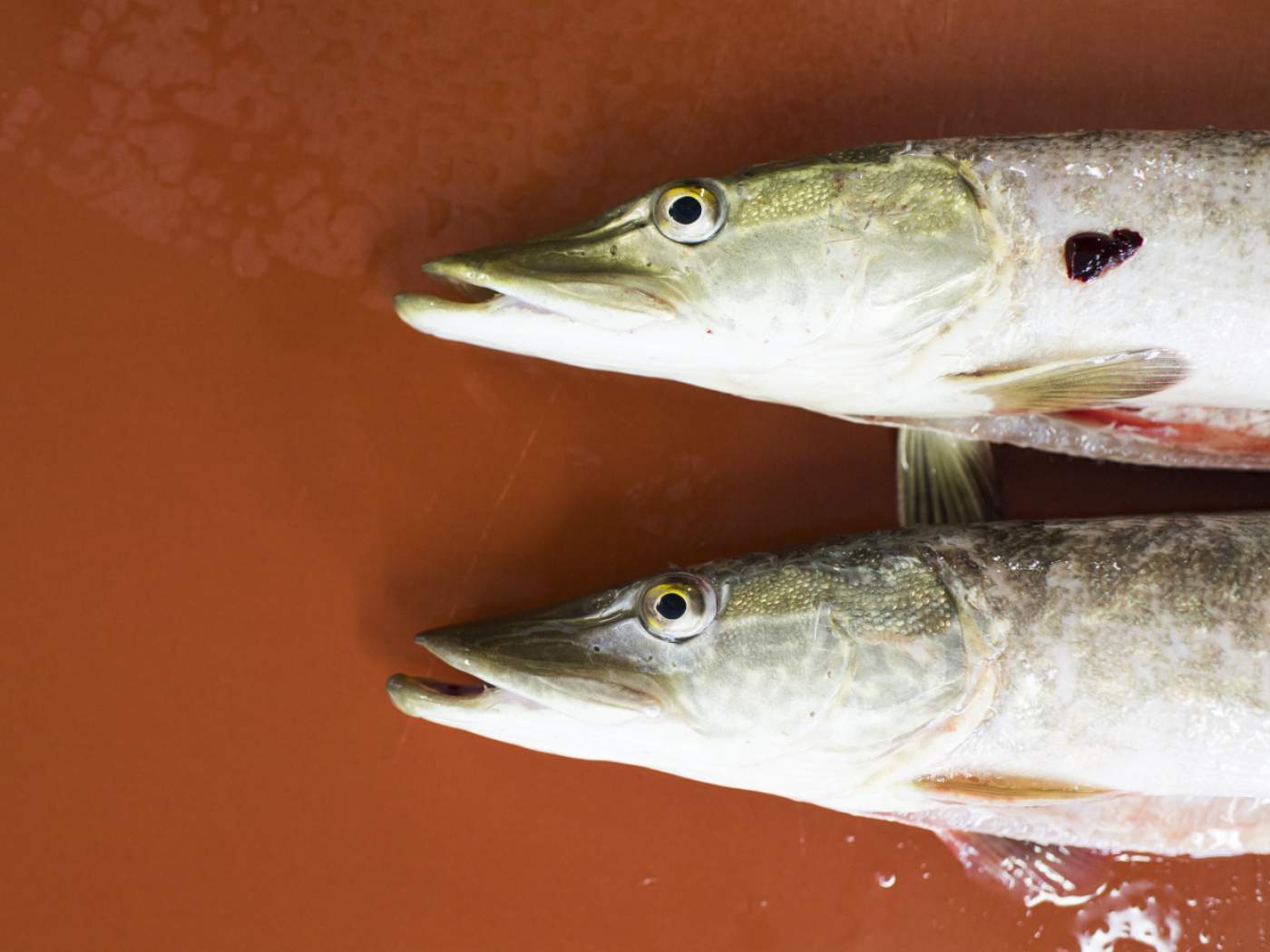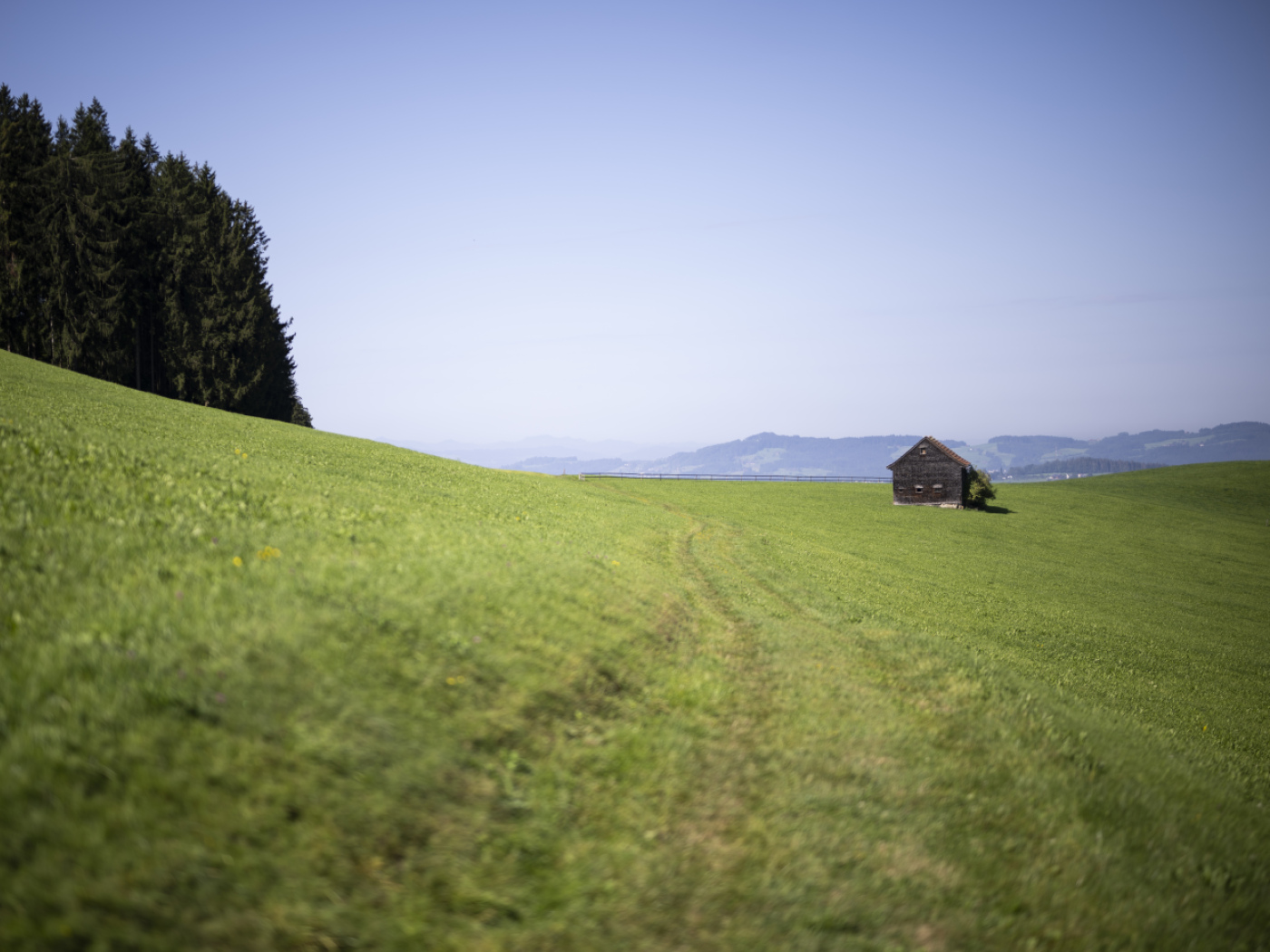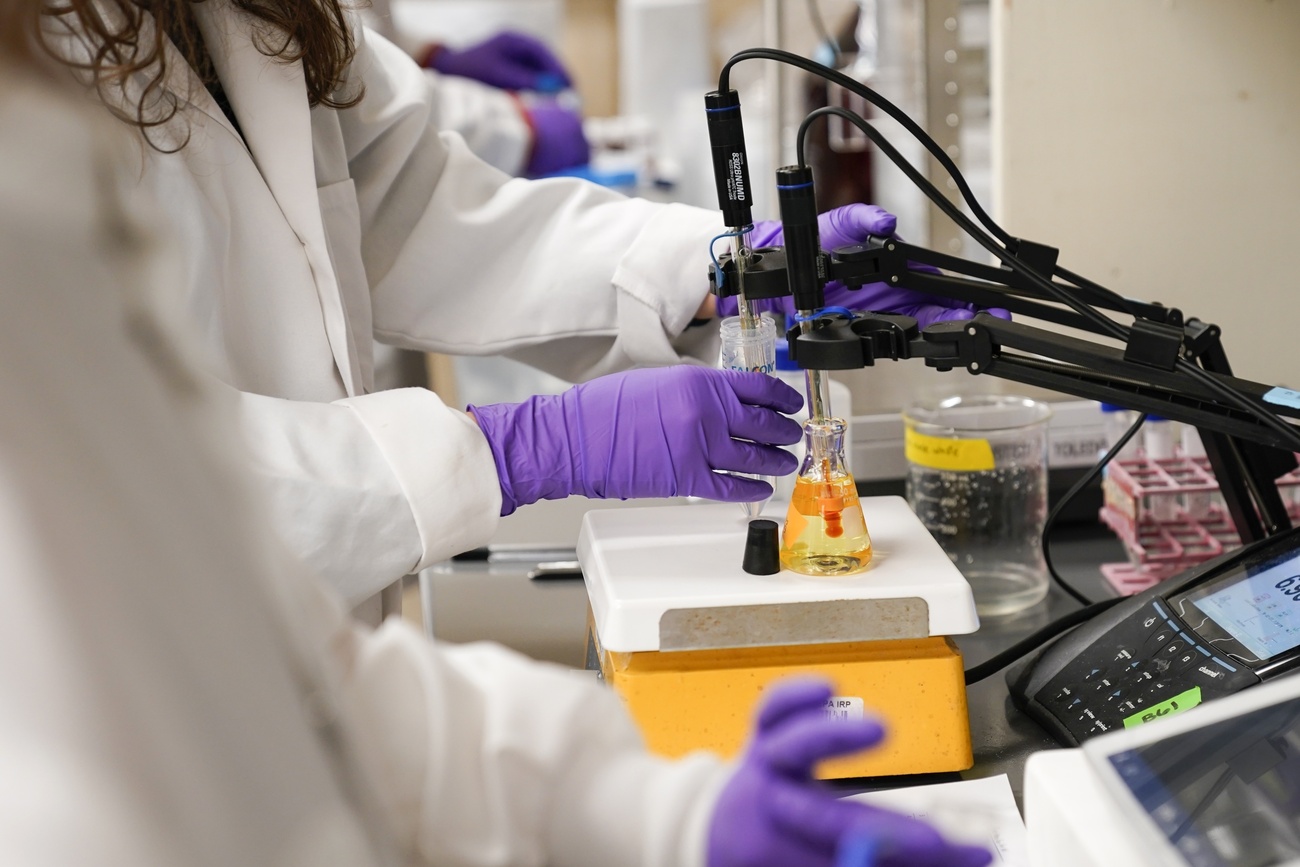
Swiss authorities impose ban on sale of PFAS-tainted fish

Pike and perch from Lake Zug in central Switzerland are too contaminated by PFAS, so-called "forever chemicals". Their sale or distribution as food is forbidden with immediate effect.
+Get the most important news from Switzerland in your inbox
Representative samples of the stocks showed that the federal food safety limits had been exceeded, the Zug authorities declared on Friday.
A ban now is now in place for all professional and amateur fishermen and women. However, personal consumption remains permitted.
According to the press release, eating fish contaminated with PFAS does not pose an acute health risk. However, repeated ingestion of the chemicals over the years can cause chronic damage to health and should therefore be avoided.

More
PFAS-contaminated meat still sold in eastern Switzerland
Financial support planned
The ban will mean financial losses for professional fishermen and women. The cantonal government is “in principle” in favour of providing support and has commissioned the Office for Forests and Wildlife (AFW) to clarify the details.
The office will also be responsible for the disposal of pike and perch caught by professional anglers in future. Recreational anglers will be provided with containers at the municipal carcass collection centres.
“All fish caught must continue to be recorded in the catch statistics and reported to the AFW,” according to a press statement.

More
‘We must break the taboo that ‘forever chemicals’ are indispensable’
Pfas entries are being investigated
Whitefish were also analysed but their FPAS contamination did not exceed the maximum values. Fish from Lake Aegeri in canton Zug and from fish farms are also not affected by the ban.
The samples were part of a one-year monitoring programme. This started after random samples from the second half of 2024 indicated that the PFAS maximum levels may have been exceeded.
The PFAS chemicals in Lake Zug originate mainly from contaminated sites such as former fire training and fire event sites and former factory zones. Current PFAS inputs are being investigated, according to the press release. There are indications that these were higher in the past than they are today.

More
Switzerland ends study on exposure to PFAS and pesticides to cut costs
Translated from German by DeepL/sb
We select the most relevant news for an international audience and use automatic translation tools to translate them into English. A journalist then reviews the translation for clarity and accuracy before publication.
Providing you with automatically translated news gives us the time to write more in-depth articles. The news stories we select have been written and carefully fact-checked by an external editorial team from news agencies such as Bloomberg or Keystone.
If you have any questions about how we work, write to us at english@swissinfo.ch

In compliance with the JTI standards
More: SWI swissinfo.ch certified by the Journalism Trust Initiative































You can find an overview of ongoing debates with our journalists here . Please join us!
If you want to start a conversation about a topic raised in this article or want to report factual errors, email us at english@swissinfo.ch.